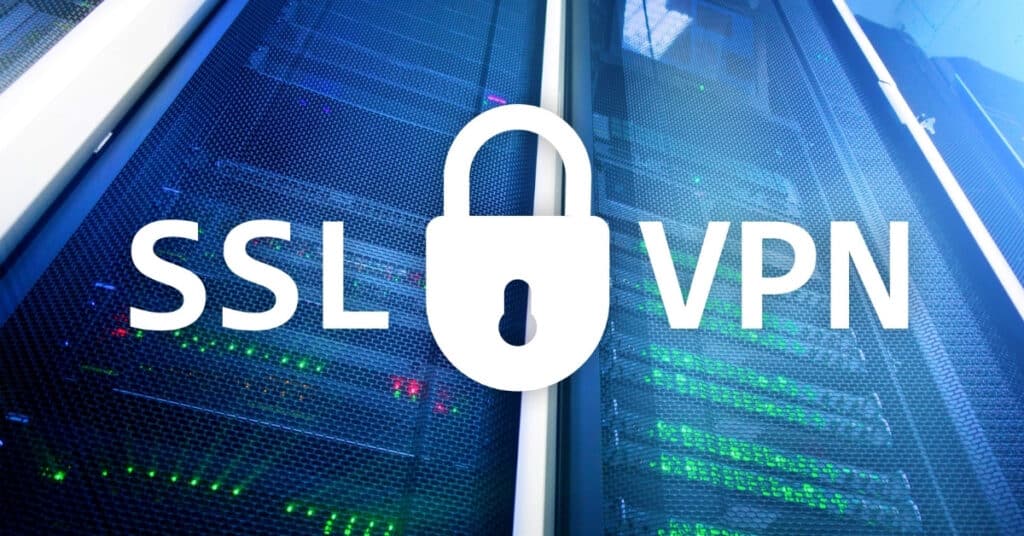Introduction
SSL (Secure Socket Layer) certificates play a vital role in website security and establishing trust with users. It ensures that the data transmitted between a user’s browser and the website’s server is encrypted and secure. SSL certificates have become a standard practice for all online businesses to protect sensitive information such as personal data, credit card details, and login credentials. This blog post will provide an overview of SSL certificates and their importance, as well as an explanation of the different types available.
Overview of SSL Certificates and their importance
SSL certificates are digital certificates that authenticate the identity of a website and enable secure communication between the website and its visitors. The primary purpose of an SSL certificate is to encrypt the data transmitted between the user’s browser and the website’s server, making it impossible for third parties to intercept and decipher the information.
The importance of SSL certificates cannot be overstated, especially in an era of increasing cyber threats. Here are some key reasons why SSL certificates are essential:
- Data Encryption: SSL certificates use encryption algorithms to scramble data, making it unreadable to unauthorized parties. This ensures that sensitive information remains secure during transmission.
- Authentication: SSL certificates provide authentication, verifying the identity of the website to the user. This helps users trust that they are interacting with a legitimate and trustworthy website.
- Secure Payment Processing: SSL certificates are crucial for websites that handle online payments. By encrypting credit card and payment details, SSL certificates prevent hackers from intercepting and misusing this sensitive information.
- SEO Benefits: SSL certificates have also become a ranking factor for search engines like Google. Websites with SSL certificates are more likely to rank higher in search engine results, improving visibility and credibility.
Explanation of the different types of SSL Certificates
There are various types of SSL certificates available, each designed to meet specific security and validation requirements. The main types are:
- Domain Validated (DV) SSL Certificates: These certificates are the most basic level of SSL certificates. They simply verify that the domain is registered and controlled by the applicant. DV certificates offer encryption and authentication, but do not require extensive validation processes.
- Organization Validated (OV) SSL Certificates: OV certificates involve a more rigorous validation process, verifying not only the domain ownership but also the organization behind it. This level of validation provides higher authenticity and trust for users.
- Extended Validation (EV) SSL Certificates: EV certificates provide the highest level of validation and credibility. They undergo the most comprehensive verification process, validating the organization’s legal existence, physical location, and operational legitimacy. Websites with EV certificates display a green address bar, indicating the highest level of trust.
- Wildcard SSL Certificates: Wildcard certificates are designed to secure multiple subdomains under a single domain. This is particularly useful for businesses with multiple subdomains or online platforms with user-generated content.
- Multi-Domain SSL Certificates: As the name implies, these certificates allow securing multiple domains with a single certificate. They are ideal for businesses or organizations with multiple websites or applications.
In conclusion, SSL certificates are crucial for protecting sensitive data, establishing trust with users, and enhancing search engine optimization. Understanding the different types of SSL certificates available enables businesses to choose the appropriate level of security and validation for their specific needs.
Domain Validated (DV) SSL Certificates
Domain Validated (DV) SSL Certificates are a type of SSL (Secure Sockets Layer) certificate that verify the ownership of a domain. These certificates are commonly used to secure websites and encrypt information transmitted between a website and its visitors. The purpose of DV SSL Certificates is to ensure that the connection between a website and its users is secure and to establish trust and credibility.
In conclusion, DV SSL Certificates are an essential tool for website owners to secure their websites and establish trust with their users. With their ease of issuance, cost-effectiveness, strong encryption, and trust-building features, DV SSL Certificates provide a range of benefits that can contribute to the success of a website.
Organization Validated (OV) SSL Certificates
OV SSL Certificates are a type of SSL (Secure Sockets Layer) certificate that provide a higher level of validation and security compared to Domain Validated (DV) SSL Certificates. These certificates are obtained through a rigorous verification process that involves verifying the ownership of a domain and validating the organization or business that operates the website. The purpose of OV SSL Certificates is to establish the authenticity and credibility of the organization behind a website, ensuring that users can trust the information and transactions conducted on the website.
In conclusion, OV SSL Certificates offer a higher level of validation, security, and trust compared to DV SSL Certificates. With their enhanced verification process, robust encryption, customer trust-building features, compatibility, and warranty protection, OV SSL Certificates are the preferred choice for organizations that prioritize data security, trust, and credibility.
Extended Validation (EV) SSL Certificates
Extended Validation (EV) SSL Certificates are a type of SSL (Secure Sockets Layer) certificate that provide the highest level of security and trust for websites. These certificates go through a rigorous verification process to confirm the identity and legitimacy of the website owner. The purpose of EV SSL Certificates is to establish confidence and credibility among website users by displaying a prominent green address bar in the browser.
In summary, EV SSL Certificates offer the highest level of security, trust, and credibility for websites. The extensive verification process, high-security encryption, green address bar, and protection against phishing attacks provide a range of benefits that contribute to the success of a website and the confidence of its users.

SSL Certificate Encryption Levels
SSL Certificates use encryption to ensure the security of data transmitted between a website and its users. There are different levels of encryption offered by various types of SSL certificates. Let’s explore the encryption levels for each type:
1. Domain Validated (DV) SSL Certificates: DV SSL Certificates provide basic encryption using 128-bit or 256-bit encryption algorithms. This level of encryption is sufficient for most websites to protect sensitive data, such as login credentials or contact information. DV SSL Certificates are relatively easy to obtain and require the verification of domain ownership only.
2. Organization Validated (OV) SSL Certificates: OV SSL Certificates offer a higher level of encryption, typically using 256-bit encryption algorithms. This provides enhanced security for websites that handle more sensitive data, such as financial transactions. To obtain an OV SSL Certificate, the website owner needs to provide additional documentation for organization verification.
3. Extended Validation (EV) SSL Certificates: EV SSL Certificates provide the highest level of encryption with up to 256-bit encryption algorithms. This level of encryption is essential for websites that handle highly sensitive information, such as e-commerce platforms or healthcare portals. EV SSL Certificates undergo a rigorous verification process, ensuring the authenticity of the website and the organization behind it.
In conclusion, encryption is an essential component of SSL Certificates. The different encryption levels offered by various types of SSL Certificates cater to different security needs. Whether it’s basic encryption for general websites, enhanced encryption for organizations, or the highest level of encryption for sensitive data, SSL Certificates play a vital role in protecting data, building trust, and complying with regulations.
Vetting and Verification Processes for SSL Certificates
SSL Certificates are essential for establishing secure and encrypted connections between websites and users. However, not all SSL Certificates are created equal, as they go through different vetting and verification processes depending on their type. The three main types of SSL Certificates are Domain Validation (DV), Organization Validation (OV), and Extended Validation (EV) Certificates. Let’s take a closer look at the vetting and verification processes for each type:
1. Domain Validation (DV) Certificates: DV Certificates are the most basic type of SSL Certificates and are designed to provide encryption for websites. The vetting process for DV Certificates is relatively simple and only requires verification of the domain ownership. This is typically done by confirming the domain’s control through email verification or by publishing a specific record in the domain’s DNS. DV Certificates can be issued quickly, usually within a matter of minutes, making them a popular choice for personal websites or blogs.
2. Organization Validation (OV) Certificates: OV Certificates provide an intermediate level of assurance compared to DV Certificates. The vetting process for OV Certificates involves verifying the domain ownership, as well as verifying the legal existence and identity of the organization behind the website. This includes validating the organization’s legal registration, physical address, and telephone number. The verification process for OV Certificates is more thorough and can take several business days to complete. OV Certificates are often used by small and medium-sized businesses or organizations that require a higher level of trust and credibility.
3. Extended Validation (EV) Certificates: EV Certificates offer the highest level of assurance and trust among SSL Certificates. The vetting process for EV Certificates is the most rigorous and comprehensive. It includes all the verification steps required for OV Certificates, plus additional checks to confirm the legal existence and identity of the organization, as well as the identity and authority of the individual applying for the certificate. EV Certificates undergo a thorough vetting process conducted by a Certificate Authority (CA) that is trusted by web browsers. This process can take anywhere from a few days to a few weeks to complete. EV Certificates are typically used by e-commerce websites, financial institutions, and other entities that handle sensitive user information.

In summary, SSL Certificates go through different vetting and verification processes depending on their type. DV Certificates require basic domain ownership verification, OV Certificates involve verifying domain ownership and organization identity, while EV Certificates undergo a thorough verification process to confirm organization and individual identity. EV Certificates offer the highest level of assurance and trust, and are easily distinguished by the green address bar in the browser.
Choosing the Right SSL Certificate
When selecting an SSL Certificate for your website, there are several factors to consider. These include the level of assurance and trust you want to provide to your users, the type of website you have, and the budget you have allocated for SSL.
- Level of Assurance and Trust: The level of assurance and trust you want to provide to your users is an important consideration. If your website handles sensitive user information, such as credit card details or personal data, you may want to opt for an Extended Validation (EV) Certificate. EV Certificates offer the highest level of assurance and trust, as they undergo a rigorous verification process to confirm the organization and individual identity. This is reflected in the green address bar displayed in web browsers. For websites that require a moderate level of assurance, an Organization Validation (OV) Certificate may be sufficient.
- Type of Website: The type of website you have will also influence the choice of SSL Certificate. For personal websites or blogs that do not handle sensitive user information, a Domain Validation (DV) Certificate may be suitable. DV Certificates offer basic encryption and can be issued quickly and at a lower cost compared to OV or EV Certificates. However, if your website represents a small or medium-sized business or organization that requires a higher level of trust and credibility, an OV Certificate may be more appropriate.
- Budget: Budget considerations are also important when selecting an SSL Certificate. DV Certificates are typically the most affordable option, as they require less stringent verification processes. OV Certificates are priced higher, as they involve verifying both domain ownership and organization identity. EV Certificates are the most expensive, but they offer the highest level of assurance and trust. It is important to evaluate your budget and assess how much you are willing to invest in an SSL Certificate that meets your security needs.
In conclusion, the vetting and verification processes for SSL Certificates vary depending on their type. DV Certificates require basic domain ownership verification, OV Certificates involve verifying both domain ownership and organization identity, and EV Certificates undergo a thorough verification process to confirm organization and individual identity. The right SSL Certificate for your website will depend on factors such as the level of assurance and trust required, the type of website you have, and your budget. It is important to carefully consider these factors to ensure the security and trustworthiness of your website.
Benefits of SSL Certificates
SSL Certificates play a crucial role in enhancing website security and establishing trust with users. By encrypting the connection between the website and the user’s browser, SSL Certificates protect sensitive information from potential hackers and eavesdroppers. This is especially important for websites that handle personal or financial data, as it ensures that the information remains confidential and secure.
In addition to encryption, SSL Certificates also provide authentication. The rigorous vetting and verification processes involved in obtaining SSL Certificates help to verify the identity of the website and the organization behind it. This increases user trust, as they can be confident that they are interacting with a legitimate and trustworthy website. For businesses, this helps to build a positive online reputation and instills confidence in potential customers.
Positive impact on SEO and user experience
Implementing SSL Certificates can have a positive impact on a website’s search engine optimization (SEO) and user experience. Search engines, such as Google, have started giving preference to secure websites in their search rankings. This means that websites with SSL Certificates are more likely to appear higher in search results, leading to increased visibility and organic traffic.
Moreover, SSL Certificates contribute to a better user experience. When users visit a website secured with SSL, they will see a padlock icon in the address bar, indicating that the connection is secure. This visual cue reassures users that their data is protected, enhancing their overall experience and increasing trust in the website. Additionally, websites with Extended Validation (EV) Certificates are distinguished by a green address bar, which further reinforces trust and credibility.

In conclusion, SSL Certificates provide numerous benefits to websites and their users. They enhance website security by encrypting connections and verifying the identity of the website and organization. SSL Certificates also impact SEO by improving search engine rankings and contribute to a positive user experience by instilling trust and providing visual cues of security. Implementing SSL Certificates is essential for any website that wants to prioritize security, trust, and visibility in today’s digital landscape.
Conclusion
Summary of the different types of SSL Certificates
There are several types of SSL Certificates available, each offering different levels of security and validation. The most common types include:
1. Domain Validated (DV) SSL Certificates: These certificates verify the ownership of the domain and are the easiest and quickest to obtain. They provide basic encryption and are suitable for small websites and blogs.
2. Organization Validated (OV) SSL Certificates: These certificates not only verify domain ownership but also conduct a more thorough vetting process to verify the organization’s identity. They provide a higher level of security and are suitable for businesses that handle sensitive customer information.
3. Extended Validation (EV) SSL Certificates: These certificates require the most rigorous validation process, including verifying legal and physical existence of the organization. EV Certificates provide the highest level of trust and security, as indicated by the green address bar in most browsers. They are ideal for e-commerce websites and online businesses.
Importance of obtaining an SSL Certificate for your website
Obtaining an SSL Certificate is crucial for any website for the following reasons:
1. Enhanced security: SSL Certificates encrypt the connection between the website and the user’s browser, ensuring that sensitive information remains confidential and secure. This protects both the website owner and the users from potential cyber threats.
2. Improved trust and credibility: SSL Certificates verify the identity of the website and the organization behind it. This, in turn, increases user trust and confidence in the website, leading to better credibility and reputation.
3. Positive impact on SEO: Search engines prioritize secure websites in their search rankings, meaning that websites with SSL Certificates are more likely to appear higher in search results. This can increase organic traffic and improve overall website visibility.
4. Better user experience: SSL Certificates provide visual cues of security, such as the padlock icon in the address bar. This reassures users that their data is protected, leading to a positive user experience and increased trust in the website.
In conclusion, obtaining an SSL Certificate is essential for any website that wants to prioritize security, trust, and visibility. With the increasing prevalence of cyber threats, SSL Certificates provide an effective means of protecting sensitive information and establishing credibility with users. Whether it’s a small blog or a large e-commerce website, implementing an SSL Certificate is crucial for ensuring a safe and trustworthy online environment.

